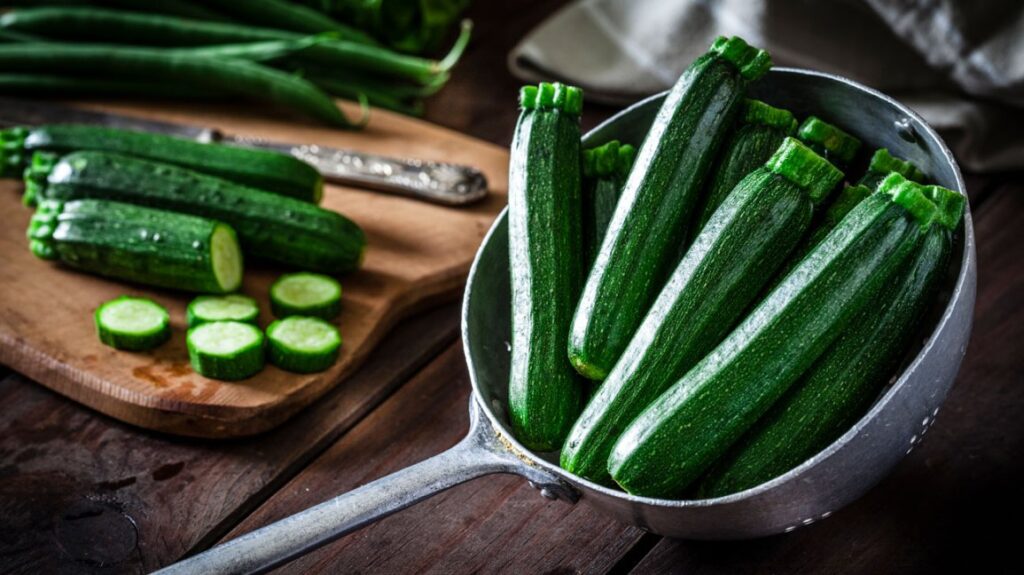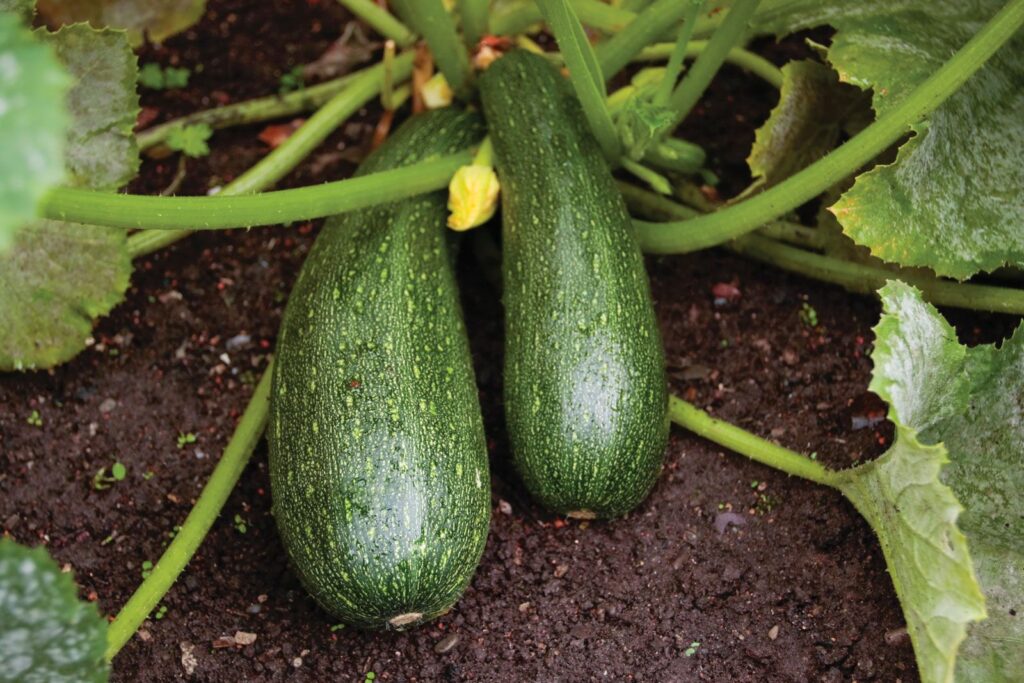Introduction
Zucchini, or courgetti, is a versatile and nutritious vegetable belonging to the summer squash family. Celebrated for its mild flavor and tender texture, zucchini is a staple in various global cuisines. Its low-calorie content makes it a favorite among health-conscious individuals. This article explores the nutritional advantages of zucchini, its culinary applications, and tips on how to include this delightful vegetable in your diet.
Nutritional Profile
Zucchini is low in calories and rich in nutrients. Here’s a detailed look at its nutritional content per 100 grams (about 3.5 ounces):
- Calories: 17
- Water: 95%
- Protein: 1.2 grams
- Fat: 0.3 grams
- Carbohydrates: 3.1 grams
– Fiber: 1.0 gram
– Sugar: 2.5 grams - Vitamins:
– Vitamin C: 17% of the Daily Value (DV)
– Vitamin A: 4% of the DV
– Vitamin K: 3% of the DV
– B vitamins (including B6, folate, and riboflavin) - Minerals:
– Potassium: 12% of the DV
– Magnesium: 4% of the DV
– Manganese: 4% of the DV

Health Benefits of Zucchini
- Low in Calories: With only 17 calories per 100 grams, zucchini is ideal for weight management. Its low calorie content allows for larger portions without overindulging.
- Nutrient-Rich: Zucchini is packed with essential vitamins and minerals, especially vitamin C, which boosts the immune system and promotes skin health. Its high water content aids in hydration.
- High in Antioxidants: Zucchini contains antioxidants like lutein and zeaxanthin, which support eye health and protect against age-related macular degeneration and cataracts.
- Digestive Health: The fiber in zucchini promotes regular bowel movements and prevents constipation. Its water content also aids digestion and hydration.
- Heart Health: Zucchini is a good source of potassium, which helps regulate blood pressure by counteracting sodium. A potassium-rich diet can lower the risk of heart disease.
- Blood Sugar Control: The fiber in zucchini helps regulate blood sugar levels by slowing sugar absorption into the bloodstream, making it suitable for those managing diabetes.
Culinary Uses
Zucchini’s mild flavor and versatility make it a favorite in various dishes. Here are some popular ways to incorporate zucchini into your meals:
- Zucchini Noodles (Zoodles): A low-carb pasta alternative, zucchini can be spiralized into noodles and paired with your favorite sauces.
- Stir-Fries: Add sliced zucchini to stir-fries for a colorful and nutritious meal.
- Soups and Stews: Diced zucchini adds texture and nutrients to soups and stews without many calories.
- Baked Goods: Grated zucchini can be used in muffins and bread, adding moisture and nutrition.
- Salads: Raw zucchini can be sliced or spiralized and added to salads for extra crunch.
- Grilled or Roasted: Grilling or roasting zucchini enhances its natural sweetness. Toss with olive oil, salt, and pepper, and cook until tender.

Tips for Selecting and Storing Zucchini
- Selecting: Choose firm, glossy zucchinis with vibrant green color. Avoid soft, blemished, or wrinkled ones.
- Storing: Store zucchini in the refrigerator, preferably in the produce drawer. It can last up to a week when stored properly. Avoid washing until ready to use to prevent spoilage.
Conclusion
Zucchini is a delicious, low-calorie vegetable offering numerous health benefits and versatile culinary uses. Its nutritional profile makes it an excellent choice for enhancing your diet with healthy, low-calorie options. Whether spiralized into noodles, added to salads, or included in stir-fries, zucchini brings flavor and nutrition to your meals. Incorporate zucchini into your diet today and enjoy its many health benefits!
